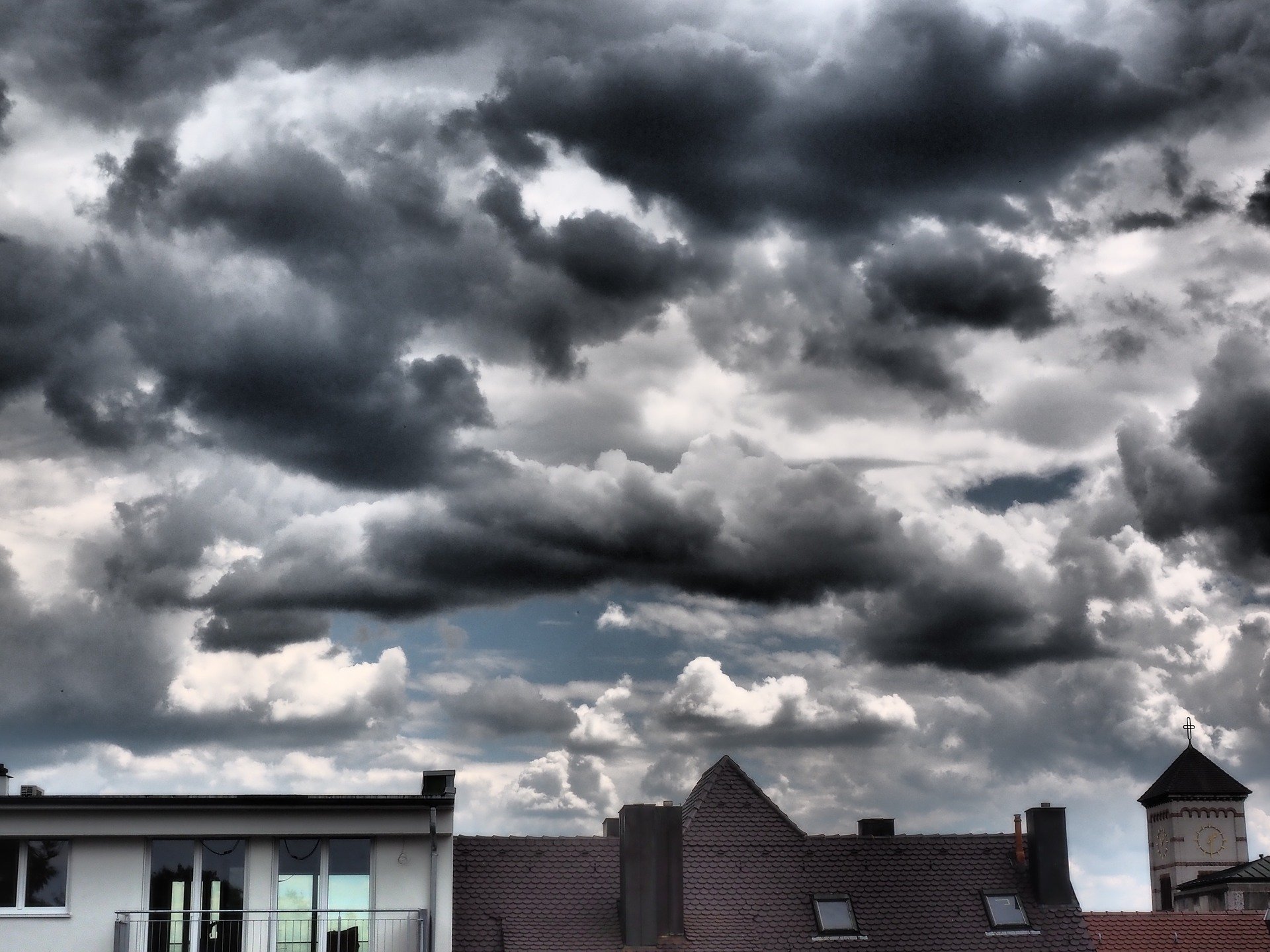 As you get ready to bundle up for winter, consider prepping your home, too. Several tips ensure it is protected and comfortable all season.
As you get ready to bundle up for winter, consider prepping your home, too. Several tips ensure it is protected and comfortable all season.
Inspect and Clean the Chimney
Whether you have a fireplace or wood stove, the chimney needs to be professionally cleaned and inspected. Remove any debris or creosote buildup, and repair any cracks or chips before you start your first fire of the season.
Change the Furnace Filter
Dust and other debris can compromise your furnace filter’s ability to do its job. Improve your furnace’s functionality and longevity when you change the filter this fall.
Install Detectors
Smoke detectors and carbon monoxide detectors are essential in your home year round but especially during the winter months. Install these detectors on each floor, and test them at least once a month.
Repair the Roof
By repairing roof leaks and loose shingles now, you prevent damaging leaks and expensive emergency repairs.
Trim Trees
High winds can blow tree branches into your home and cause extensive damage. Trim branches now as you protect your home.
Boost Insulation
An extra layer of insulation goes a long way towards keeping your home cozy. Consider insulating the hot water tank and water lines along your home’s exterior walls. You can also insulate the attic, basement, exterior walls, crawlspaces and outlets as you prepare your house for winter weather.
Apply Weatherproofing Materials
Windows and doors can be a major source of drafts and lost heat. Apply caulk or weather-stripping material to improve your comfort and reduce heating expenses. For even bigger savings, install insulated doors and thermal-pane or storm windows.
Stock an Emergency Kit
Power outages are common when heavy storms hit your area. Be prepared with an emergency kit. It can include items like extra non-perishable food, a manual can opener, bottled water, first aid kit, battery-powered radio, blankets, flashlight, batteries, hand sanitizer, portable toilet and activities.
Preparing your home for winter protects your investment. In addition to implementing these tips, ensure your home insurance is adequate. Then sit back and enjoy the season in comfort.
Read more
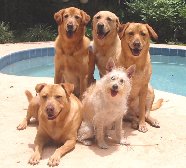 October, Adopt a Shelter Dog month, is a great time to add a dog to your family. Be careful which breed you adopt, though. Insurance companies use data from insurance claims and public health studies to create a high risk dog breed list, and your homeowners insurance premiums can increase based on the type of dog you adopt. You can save money when you choose a dog that’s not on the high risk list.
October, Adopt a Shelter Dog month, is a great time to add a dog to your family. Be careful which breed you adopt, though. Insurance companies use data from insurance claims and public health studies to create a high risk dog breed list, and your homeowners insurance premiums can increase based on the type of dog you adopt. You can save money when you choose a dog that’s not on the high risk list.
Working Breed Dogs
Agile, powerful and intelligent, Akitas, Alaskan Malamutes, Doberman Pinschers, Rottweilers and Siberian Huskies are also fiercely protective. If they’re not trained properly, these breeds could be potentially dangerous, especially to young children and small pets.
Terrier Breeds
Loyal and protective, American Pitbull Terriers and American Staffordshire Terriers have been bred to hunt. These traits mean they can become aggressive and tenacious if they’re cornered or frightened by one of your family members or guests.
German Shepherds
Police departments, military personnel and ranch hands appreciate this breed because the dogs are intelligent, hard-working and powerful. They’re also suspicious of strangers and won’t back down, which makes them a challenging breed for inexperienced owners to handle.
Chow Chows
Independent and strong Chow Chows are often kept as companions. These fluffy dogs can be aloof and stubborn, though, and should only be adopted by experienced dog owners.
Miscellaneous Breeds
Wolf Hybrid and Presa Canarios dogs exhibit strength and protective characteristics. However, they can also be unpredictable and quick to attack, making them potentially dangerous breeds. Friendly and docile Great Danes are listed on the high risk list, too, because of their size.
A dog adds fun and companionship to your home and family, and adopting a shelter dog is socially responsible. Before you choose a new pet, though, consider whether or not it will increase your homeowners insurance cost. If so, you may choose a different breed or reduce your home insurance premiums by installing a dog fence or raising your deductible.
Read more

Are you a homeowner or contractor? Did you know that you are required to call the number ‘811’ before digging on any property so that you can be made aware of any underground lines (e.g. pipes, cables and associated utilities) buried in the area? Improper digging can lead to damage to underground lines that can disrupt service to an entire neighborhood, harm diggers or excavators, and even incur potential fines and repair costs.
In case you did not know, 811 is the national “Call Before You Dig” phone number designated by the Federal Communications Commission. This number was developed to eliminate the confusion of multiple “Call Before You Dig” numbers because it is easy to use, is the same for every state, and can help protect anyone who does dig from injury, expense and potential penalties.
What Happens After Calling 811?
All 811 calls are routed to a local One Call Center and the affected utilities. The utility will then send crews to the location to mark any underground lines for the homeowner or excavator for free.
Do Most People Call Before They Dig?
Believe it or not, in spite of all the potential danger and damage that can be caused, the answer is “no.” According to a recent national survey, 45 percent of American homeowners who plan to dig this year said that they would not call 811 beforehand.*
More Information
For more information about the 811 call system, visit http://www.call811.com. To download the most current industry Best Practices in connection with preventing damage to underground facilities, go to http://commongroundalliance.com/.
Read more
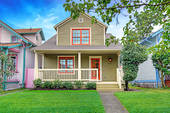 Enjoy longer days and warmer nights while protecting your investment.
Enjoy longer days and warmer nights while protecting your investment.
Summertime is the best time to be outside enjoying the weather. Make sure your deck or patio is ready for the summer sun by keeping in mind the seasonal maintenance tips below.
- Check deck or patio for possible deterioration and safety hazards such as loose boards and protruding nails.
- Check electrical outlets for potential fire hazards such as frayed wires or loose-fitting plugs. Be sure not to overload electrical outlets, fuse boxes, extension cords or any other power service.
- Check all window and door locks to ensure correct functioning. Make sure all locks are secure and there are no holes in any of the screens.
- Inspect recreational equipment for proper operation and possible dangers (e.g., Are swing sets secure, and do they contain any rusty bolts?).
- Carefully inspect your toilet. Look for the erosion of plastic floater valves, and check all pipe connections.
- Clean or replace your furnace filter.
- Clean the clothes dryer exhaust duct and space under the dryer. Remove all lint, dust and pieces of material.
- Inspect washing machine hoses periodically, and replace hoses that show signs of wear or leakage.
- Have your roof inspected by a professional once every few years to identify areas of potential leakage.
Read more
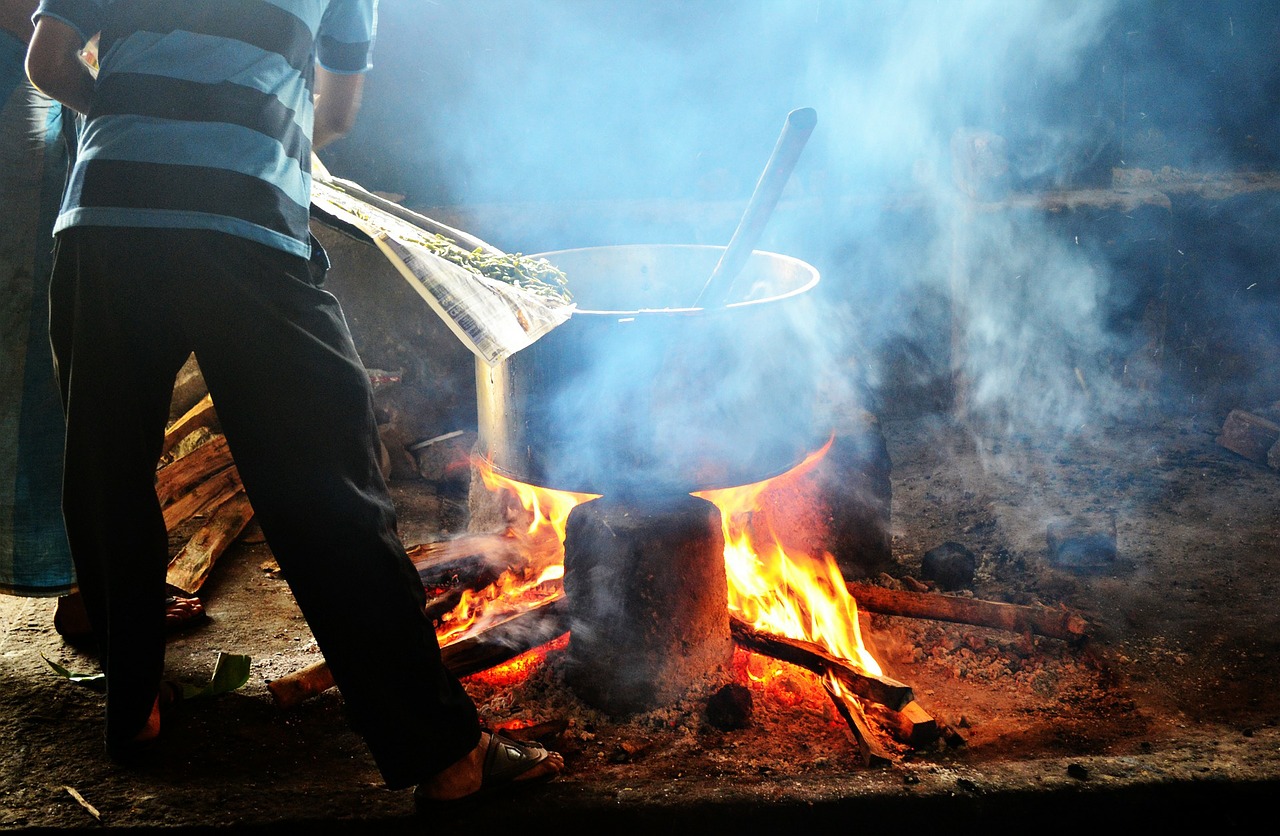 Cooking has long been and continues to be the most common cause of home structure fires and home fire-related injuries. Whether preparing for a family dinner or a quick snack, practicing safe cooking behaviors can help keep you and your family safe.
Cooking has long been and continues to be the most common cause of home structure fires and home fire-related injuries. Whether preparing for a family dinner or a quick snack, practicing safe cooking behaviors can help keep you and your family safe.
- Never leave your range or cooktop unattended while cooking. If you have to leave the room, turn your range or cooktop off.
- Wear short, close-fitting or tightly rolled sleeves. Loose clothing can hang down onto hot surfaces and can catch fire if it comes in contact with a gas flame or electric burner.
- Keep your cooking area clean and free of combustible materials. Food wrappers, oven mitts or other materials left on or near the stove may catch fire.
- Be sure to clean up any spilled or splattered grease. Built-up grease can catch fire in the oven or on the cooktop.
- Keep a fire extinguisher readily available. Having an extinguisher nearby is important, but you also need to have the correct type of extinguisher and know how to properly use it.
- Never throw hot grease in the garbage as it can ignite combustible materials.Be sure to let grease cool and dispose of it in an old can, such as a metal coffee can.
- Do not store food or other items in your oven. It can be easy to forget there is an item in your oven, and this could catch fire while preheating.
What to Do If a Cooking Fire Flares Up
By exercising caution at all times in your kitchen, you can help reduce the risk of a kitchen fire. But if a fire does flare up, you need to be prepared.
- Your safety should always come first. If you are unsure about whether it is safe to fight the fire, leave the scene, call 911 for help, and let the fire department control the fire.
- If a small fire flares up and you are going to attempt to extinguish it, call 911 for help first. A fire may grow out of control more quickly than you anticipate. It is safer to have help already on the way.
- Smother a grease fire – never throw water on a grease fire. The super-heated water can change to steam, and can cause severe burns. Oil also can splash and spread the fire. If a grease fire starts in a pan, smother the flames by sliding the lid – while wearing an oven mitt – over the pan. If safe to do so, turn off the heat source. Do not move the pan, and keep the lid on until the fire is out and the pan is completely cool.
- If a fire starts in your oven, keep the door closed and turn off the heat source.Keeping the door closed will help smother the flames. Do not open the door until the flames are completely out.
- If a fire starts in your microwave, turn off the microwave and do not open it until the fire is completely out. Unplug the microwave only if you can safely do so.
Read more
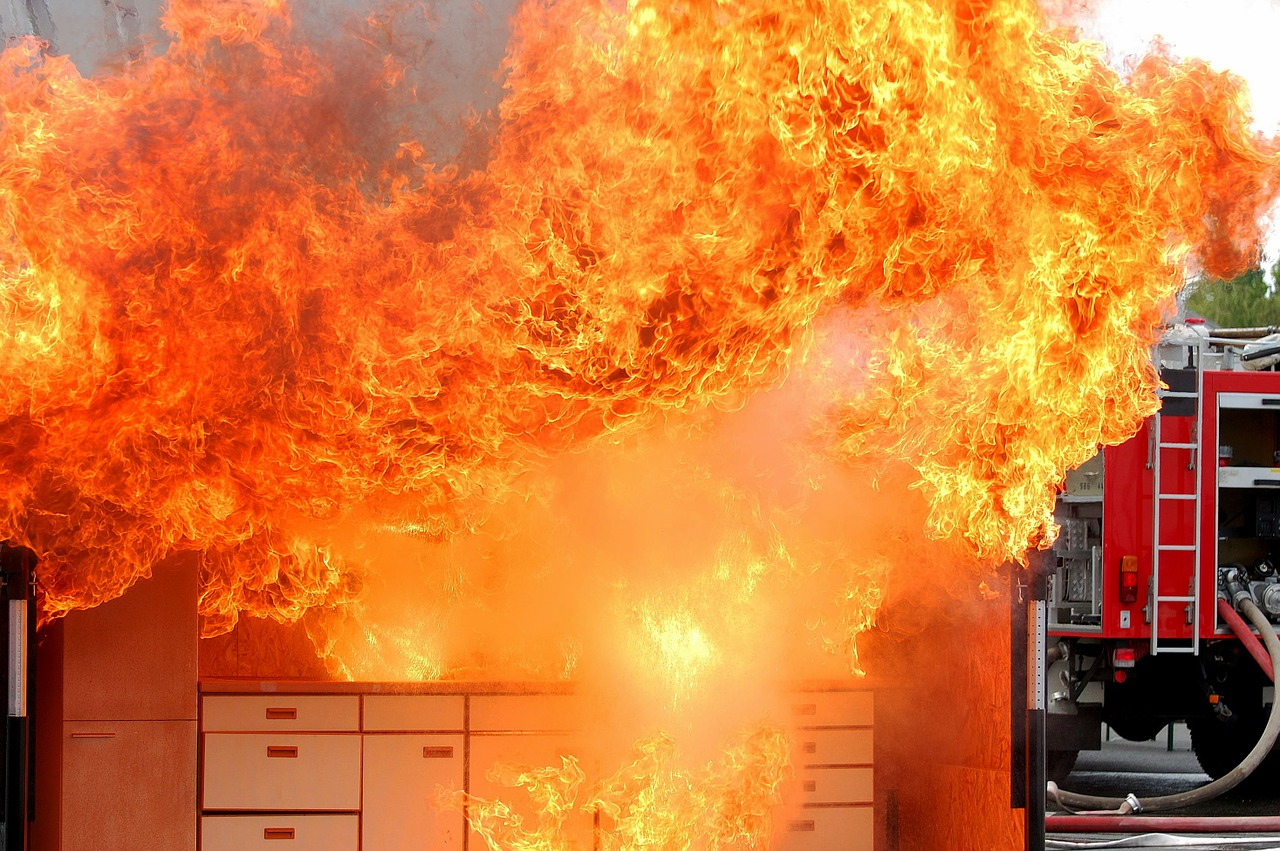 When thinking of the cause of a kitchen fire, it is common to think of cooking. But not all kitchen fires start because of cooking hazards. Non-cooking related fires commonly involve refrigerators, freezers or dishwashers. The following tips can help prevent non-cooking related fires from occurring in your kitchen.
When thinking of the cause of a kitchen fire, it is common to think of cooking. But not all kitchen fires start because of cooking hazards. Non-cooking related fires commonly involve refrigerators, freezers or dishwashers. The following tips can help prevent non-cooking related fires from occurring in your kitchen.
- Plug all kitchen appliances, including microwaves, toasters and coffee makers, directly into a wall outlet. Never use an extension cord as it can overheat and cause a fire.
- Use the right outlet for the right appliance. For larger appliances, such as ovens and refrigerators, be sure to only use properly grounded outlets with circuits that match the rating plate on the appliance. If you have older 2-prong outlets in other locations of your kitchen, have a qualified electrician replace it with a properly grounded 3-prong outlet. Do not use an adapter.
- Replace any power cords that become frayed or otherwise damaged. Never use a cord that shows cracks or other damage.
- When moving kitchen appliances, be aware of power cords. Rolling over or pinching power cords can damage them.
- Unplug small appliances when not in use.
- Keep your stove and oven clean. Built up food splatter or grease can later ignite when the stove or oven is turned on for cooking.
- Check and clean stove hoods and filters regularly. If your stove hood vents externally, make sure insects or birds do not build nests or otherwise impede air flow through it.
- Never use a gas or propane oven to heat your home. Not only is this a fire hazard, but it can also give off toxic gases.
What to Do If a Kitchen Fire Flares Up
By exercising caution at all times in your kitchen, you can help reduce the risk of a kitchen fire. But if a fire does flare up, you need to be prepared.
- Your safety should always come first. If you are unsure about whether it is safe to fight the fire, leave the scene, call 911 for help, and let the fire department control the fire.
- If a small fire flares up and you are going to attempt to extinguish it, call 911 for help first. A fire may grow out of control more quickly than you anticipate. It is safer to have help already on the way.
Using a fire extinguisher
Read more
 As you get ready to bundle up for winter, consider prepping your home, too. Several tips ensure it is protected and comfortable all season.
As you get ready to bundle up for winter, consider prepping your home, too. Several tips ensure it is protected and comfortable all season.
 October, Adopt a Shelter Dog month, is a great time to add a dog to your family. Be careful which breed you adopt, though. Insurance companies use data from insurance claims and public health studies to create a high risk dog breed list, and your homeowners insurance premiums can increase based on the type of dog you adopt. You can save money when you choose a dog that’s not on the high risk list.
October, Adopt a Shelter Dog month, is a great time to add a dog to your family. Be careful which breed you adopt, though. Insurance companies use data from insurance claims and public health studies to create a high risk dog breed list, and your homeowners insurance premiums can increase based on the type of dog you adopt. You can save money when you choose a dog that’s not on the high risk list.


 When thinking of the cause of a kitchen fire, it is common to think of cooking. But not all kitchen fires start because of cooking hazards. Non-cooking related fires commonly involve refrigerators, freezers or dishwashers. The following tips can help prevent non-cooking related fires from occurring in your kitchen.
When thinking of the cause of a kitchen fire, it is common to think of cooking. But not all kitchen fires start because of cooking hazards. Non-cooking related fires commonly involve refrigerators, freezers or dishwashers. The following tips can help prevent non-cooking related fires from occurring in your kitchen.